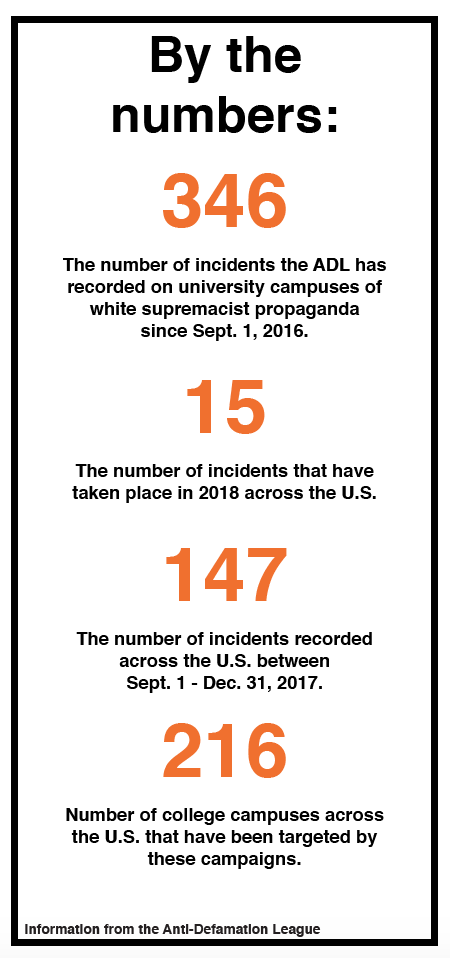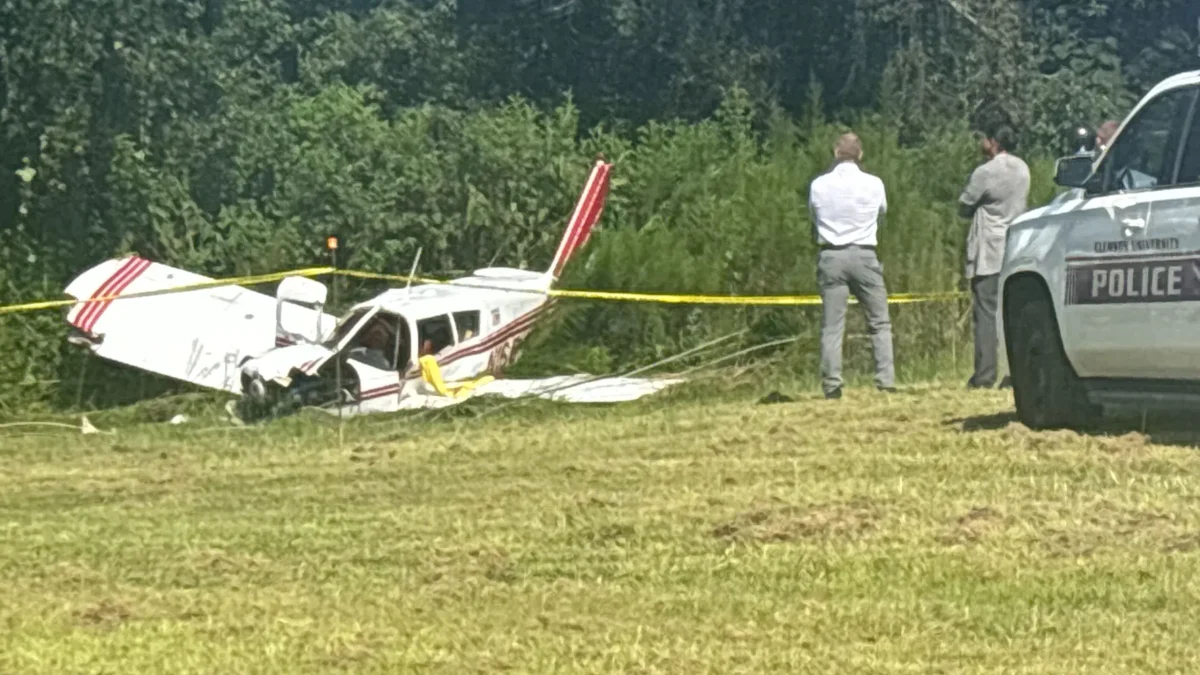As the weather warms up, tour groups come out in full force. Clemson is often heralded for its welcoming southern environment, as well as its fantastic sports program. The warm weather has also brought white supremacist propoganda onto Clemson’s campus, and this is what students and administration think.
“So this fall, I definitely did see the right wing extremist posters,” Lizzie Huntley, a freshman biochemistry major, said. “I understand that everyone has a right to free speech, but I do think that part of free speech is to educate people on what exactly they are saying and what it means and how it affects other people.”
The students often look to administration to see what the university’s response is.
“I wish Clemson would do more. I thought President Clements was a little late in saying things, and I think student government should have addressed it a little more than they did. It’s a serious thing, and I think if you allow it to perpetuate, it will only get worse,”Huntley said.
Reactions across campus are often limited, based on whether a student has encountered a poster personally. Megan Byham, a graduate industrial engineering student, shares the view of someone who hasn’t seen a poster.
“It’s pretty sad that this exists,” Byham said, admitting she hadn’t heard too much about any posters. “I don’t know how I would react, I guess I would try to take it down if it was really offensive.”
Other students have only become aware of the posters due to emails from the university.
“I have heard of them in the past, but mostly only when we get emails [about] them. I have not come upon one,” Emily Kuester, a junior mechanical engineering said, said. “It upsets me when I see stuff like that because I love Clemson and I want everyone to feel welcomed here. So obviously I don’t want to see that towards anyone.”
When asked about Clemson’s reponse, Kuester said, “I think they take action when they see it, I wish the mindset of the students wasn’t like that. I wish people didn’t even think to do those things.”
Rebecca Ann Jones, a senior genetics major, said, “I have not personally seen any, most of what I hear is from my peers or is covered in local newspapers or The Tiger.”
“It makes me disappointed to know there are people who are so polarized in their opinion one way or the other that they feel the need to put down other people down or below them as opposed to looking at more creative solutions and entering dialogue, or understanding the other person’s position. So overall, it’s disappointing, but it doesn’t really anger me. I’m just kind of disappointed,” Jones said.
Jones also added that the rise of propaganda has become an elephant in the room.
“I feel like it’s something that goes on and everyone knows it goes on, but no one does anything about it,” Jones said. “I am of the opinion that authority regulated or authority sponsored responses that just seem like big speeches or releasement of statements don’t do anything, whether they are from university presidents, whether they are from celebrities who have done wrong things, you name it.”
When asked about what she would do if she encountered a poster, Jones was sure, in part, of her answer.
“I would like to think that I would rip it off. Would I report it? Probably not, because I don’t know who I would report it to,” she said.
Ian Anderson, a fifth year student in political science, has had a more proactive approach when encountering posters.
“Generally, I have taken them down and then reported them to the media here as soon as possible,” Anderson said. “It’s been rampant. Every three or four months there are signs or flyers being found, Klan flyers were found a while ago, Sons of Odin. It’s a never ending stream; we are assaulted regularly with this propaganda.”
Anderson agreed with others’ opinion that the response from Clemson is not enough.
“We have really fallen flat on having a uniform universal response to the idea of hate speech on campus,” Anderson said.
Philip Sikes, communications director in student affairs, provided advice for all students who see the posters.
“I think the easiest thing, would be to send [hateful posters] to a front desk assistant for that respective building,” he said.
Although they typically require approval before being posted on campus, these racist posters are often in violation of university protocol.
“Anything that is posted on the bulletin board has to go through [Campus Activity and Events] and meets those approvals,” Sikes said. “A lot of the time we do see that, things are posted illegally. At which point they are removed by a member of the staff, if they know about it or if they are alerted by a student.”
A sticker on a poster indicates its approval. Posters without a sticker are posted in violation of policy like many of the white supremacist ones.
“Something that has been approved is suppose to have a sticker on it, like a stamp that shows it has been approved to be posted on a bulletin board,” Sikes said.
If a student sees anything they think is threatening, he advises them to contact the Clemson University Police Department (CUPD).








